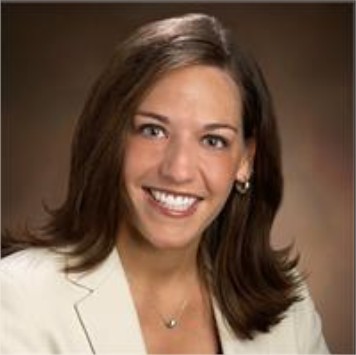1.) What does a typical day look like as a Clinician Educator? How might it be different from a career as a Clinician, Researcher or Administrator?
At the University of Colorado, every faculty member is expected to participate in research, but as a Clinician Educator the amount of time I spend in research is much less than the time I spend teaching or working with patients.
My day as a Clinician Educator is different every day, which makes the work new and interesting. I combine my clinical practice at the University of Colorado Hospital Seniors Clinic with teaching by incorporating pharmacy students and residents into the clinical practice. Together, we work with our providers, nurses, social worker, medical assistants and administrative assistants to help provide the best possible primary care to older adults in the Denver metro area. Our students and residents learn to help educate other health care practitioners, patients, and caregivers about managing complex medication regimens. We strive to prevent adverse drug events and to reduce overall medication burden as much as possible. We work collaboratively with our providers to co-manage chronic illnesses like hypertension, type 2 diabetes mellitus, and dementia. We play an integral role in preventing re-hospitalization through transition of care services. All of the clinical work then supports my classroom teaching in the School of Pharmacy and Pharmaceutical Sciences, School of Medicine, School of Dentistry and School of Public Health, where I focus on teaching the pharmacotherapy of diseases/conditions predominant in older adults or how to manage pharmacotherapy in general in older adults.
2.) Who would be a good candidate for this work? What are their interests? What skills do they need to be successful?
I feel fortunate every day to work with older adults and to help them with their medication needs. I serve as an advocate for my patients, investigating and problem solving on their behalf on a daily basis. These skills are a must for anyone who wants to prevent adverse drug events and reduce medication burden. Our clinic relies upon the practice of identifying drug causes for any new symptom, and we have regular requests for drug information related to these pursuits. Cost is a big concern for patients and navigating Medicare Part D is challenging. We are most often the go-to person for finding solutions to financial difficulties with medications. Communication skills are important, as communication may be through many avenues beyond just the patient, such as interpreters, caregivers, family members, or home health nurses. Finally, teaching learners about the complex needs of older adults requires patience, team-work, and a desire for life-long learning.
3.) What kinds of people do you interact with as a Clinician Educator?
As a clinician educator working with older adults, I interact with most professions and specialties in healthcare: medical, nursing, dental, physical/occupational therapy, social work, ophthalmology, orthopedics, surgery, internal medicine, gastroenterology, neurology, infectious diseases, critical care, cardiology, endocrinology, rheumatology, and the list goes on. One of the most exciting parts of my job is the interdisciplinary work, where I learn from others about how they help older adults, and they learn from me. This carries through from the hospital clinic to the classroom setting. Geriatricians and nurse practitioners are among the most caring and thoughtful providers, and they take time to listen to the perspectives of other team members. The foundation of taking care of older adults is teamwork, and this includes the geriatric pharmacist in any setting (e.g. hospital, ambulatory, community, long-term care). At the University of Colorado, interprofessional learning is also at the core of our student education, so learners start their graduate courses working together in interprofessional teams. With interprofessional education and training setting the stage for current practice, geriatric teamwork in clinical practice is automatic.
Learn about training requirements for a career as a Geriatric Pharmacist

